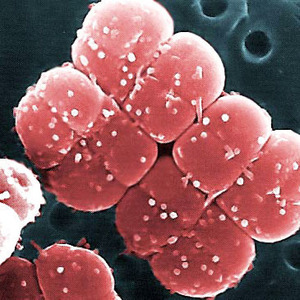Deinove reaches third milestone of the Deinol program

Deinove
July 15, 2015
BY Deinove
Deinove, a biotech company developing innovative processes for the production of biofuels and biobased chemicals using Deinococcus bacteria as host strains, recently announced that it has reached the third and penultimate milestone of its Deinol project supported by Bpifrance. Achievement of this milestone triggers funding, adding up to €1.2 million ($1.31 million), from Bpifrance, in the form of an innovation grant.
The Deinol program, initiated in 2010, aims to develop and market a consolidated, second-generation (2G) bioethanol production process using true non-food biomass (agricultural residues, organic waste, etc.) as raw material and to promote the exceptional properties of Deinococcus bacteria that Deinove is the only company worldwide to commercially exploit.
Reaching this third milestone validates the progress made in recent years, mainly:
- Improved ethanol production performance: Deinove’s tools and unique genetic engineering and fermentation skills have resulted in ethanol production of 9 percent from glucose.
- Improved hemicellulolytic and cellulolytic activities of the strain, an intrinsic Deinococcus capacity that allows significant reduction in the cost of the hydrolysis step prior to fermentation.
Advertisement
- The use of a variety of carbon sources, including very efficient co-assimilation of sugars (C5 and C6) from 2G biomass—wheat straw, corn stover, urban waste—resulting in better bioethanol production performance from these various industrial substrates. Several conclusive and repeated tests were conducted on this basis in 20-litre fermenters.
- Improved tolerance of the strain to inhibitors common to 2G substrates.
- Progressive scale-up from 250 ml to laboratory-scale pilot.
- Validation of a strain preservation and stability method, which can be a decisive industrial advantage for manufacturing starters.
Advertisement
These advances have also materialized in a strong intellectual property. Deinove currently has a diverse portfolio of 18 patent families consisting of more than 180 patent applications internationally, particularly in Europe, the USA and China.
“Validation of this third milestone of the Deinol program by Bpifrance rewards the considerable progress we have made. We continue to ramp-up the program to the industrial pilot phase. Compared to the initial program, we have also greatly expanded our possibilities in terms of relevant substrates and therefore market potential,” said Emmanuel Petiot, CEO of Deinove.
“Deinove has focused on bringing—through a disruptive innovation—a novel bacterial genus within the set of existing industrial microorganisms, in order to provide more efficient alternatives. Tremendous progress has been made since 2010 and it demonstrates the relevance of the integration of the company’s three main strengths: biodiversity, proprietary metabolic engineering platform, and real-time evaluation of the resulting strains,” said Gérard Goma, Emeritus professor at INSA Toulouse and expert in bioprocesses.
Deinol is supported by the French Strategic Industrial Innovation program (Innovation Stratégique Industrielle; ISI), which foresees an overall funding for Deinove up to € 6.3 million. The company has already received € 4.1 million in the preceding phases. Reaching this new milestone will trigger a payment worth € 1.2 million by Bpifrance in the coming days.
Related Stories
CountryMark on July 22 celebrated the completion of more than $100 million in upgrades at its refinery in Indiana, including those related to soybean oil storage. The facility produces renewable diesel via coprocessing technology.
ATOBA Energy and Air Moana are partnering to implement scalable solutions for the supply of SAF. The collaboration aims to ensure long-term SAF availability while supporting local initiatives to develop sustainable fuel production in Tahiti.
Neste Corp. on July 24 released second quarter results, reporting record quarterly renewable product sales volumes despite weaker margins. SAF sales were up nearly 80% when compared to the first quarter of 2025.
Valero Energy Corp. on July 24 released second quarter results, reporting a profitable three-month period for its ethanol segment. The renewable diesel segment posted a loss, but the company’s new sustainable aviation fuel (SAF) unit operated well.
The IRS on July 21 published a notice announcing the 2025 calendar-year inflation adjustment factor for the Section 45Z clen fuel production credit. The resulting adjustment boosts maximum the value of the credit by approximately 6%.
Upcoming Events










